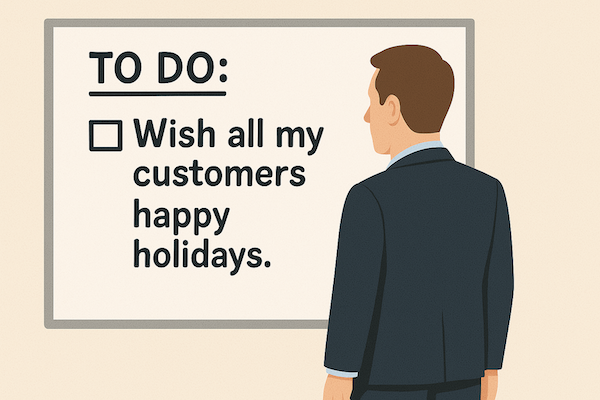Business Growth and Strategy: Three Mistakes New Founders Often Make


As a business growth strategist specializing in sales leadership, it is incredibly rewarding to witness entrepreneurs and their teams achieve key revenue milestones. One of the most significant milestones is when a prospect recognizes the value in their vision, whether it's a product or a service, and agrees to invest in it. It doesn't matter if they have created a SaaS platform, a mobile application, or a managed service – this validation serves as a powerful motivator for them. With the right business strategy in place, the company begins to achieve significant milestones. This includes reaching Annual Recurring Revenue (ARR) benchmarks of $1M, $3M, $10M, and $20M. They secure their first renewal, close a major deal with a full-price enterprise client on a multi-year agreement, or even get acquired.
Once founders experience these milestones for the first time, it becomes addictive, and they yearn for more. However, the harsh reality is that 20% of small businesses fail in the first year, and that number increases to 50% by the fifth year. According to research from Forbes Advisor, a staggering 90% of start-ups fail. These numbers are alarming, and there are numerous reasons behind them, ranging from issues with the product itself to a lack of funding and poor management.
Three Mistakes That Increase Small Business Failure Rates
- The Unique Selling Proposition (USP) is Not Clear and Truly Different.
It is the Founder's responsibility to own the vision and unique selling proposition (USP) of the company. The team and advisors are there to support the Founder in executing the vision and provide valuable input. However, it is crucial for the Founder to have a clear understanding of the problem that the company's product or service solves for its ideal customer. This forms the foundation for all future activities, including sales, marketing, delivery, operations, and hiring. And for each of these areas to have the best chance of meeting and exceeding goals, it's important for everyone to understand what I call the Four F's - Fuzziness Fast-tracks Founder Failure.
It doesn't matter what you are selling, whether it's a platform, a SaaS application, a mobile application, a delivery service, or a one-off product, the "What's In It For Me" (WIIFM) needs to be concise. The ideal customer should raise their hand and say, "This is something that I cannot live without.", is
W = What is the product or service?
I = Investment required?
F = Fulfills what needs?
M = Meaningful impact?
What will I receive? How much do I need to spend and for how long? What problems will it solve for me? What measurable ROI will I get from my investment?
If the ROI is an absolute no-brainer decision, then this journey has the potential to be enjoyable and rewarding for the founder and the team.
Great Examples of Concise an Impactful USP’s
The most valuable businesses are often the ones that completely disrupt traditional practices and pave the way for innovative approaches.
SpaceX designs, manufactures and launches advanced rockets and spacecraft.
Drizzly online ordering and delivery platform that facilitates the delivery of alcohol from local retailers.
Airbnb online marketplace for short- and long-term homestays and experiences.
Every entrepreneur hears about unicorns like SpaceX, Drizzly, and Airbnb and aspires to have similar success. However, they would have never had a shot unless they were crystal clear and concise about what they do.
- While Hope is Powerful It Is Not a Good Business Plan
When conducting sales audits, I frequently engage in conversations with founders and their teams to understand the current state of their business. When I ask them about their revenue expectations, their responses often sound something like this: "Well, we are hoping to achieve $XXX in revenue because we believe we have created a product that will resonate with people." However, when I inquire about the data supporting these numbers, I often discover that it is based more on gut feelings or directives from investors. This is a significant red flag.
Buyers typically give businesses 20-30 seconds to communicate their unique selling proposition (USP) and how it addresses their needs. If you can convey it clearly in under 10 seconds (around 25 words), the buyer is likely to be 90%+ convinced or decide it's not a fit. Need-based buying decisions are less affected by the current economy. On the other hand, purchases driven by wants are unpredictable and often delayed due to economic factors.
- The Wrong Advisors and Team
Some of the best innovations and ideas often struggle to gain the traction that they should. This can be attributed to various reasons, including limited funding and resources, as well as the selection of inappropriate advisors and key team members by the founders. Typically, founders seek guidance from advisors who are recognized as industry leaders with relevant connections in the target market or successful entrepreneurs who have built valuable businesses in the past. However, it is important to note that these advisors may unintentionally influence founders based on their own biases and experiences. All too often, these individuals are concerned about being associated with something that could potentially disrupt their existing relationships and put them at risk. We often find that advisors and board members provide advice that diverts the founder's attention and limited time away from their mission of transitioning forward. Small and medium-sized business founders do not have the luxury of abundant time and resources like larger companies with multiple layers of talent. Having known names on your Advisory team can be very valuable, but often those Advisors have never bootstrapped a small business.
According to CB Insights research from July 2023, only 1200 privately held start-ups have achieved the highly coveted unicorn status and $1B valuation. There are 32.3 million small businesses in the US at various stages of maturity. The likelihood of a successful entrepreneurial venture increases exponentially when its USP can be understood in 25 words or less, has a sound GTM strategy that is fully supported with market data, and experienced revenue growth experts as mentors.
How clear is your USP? I would love to hear it and help you celebrate growth milestones along your journey.
For additional sales tips, sales insights, and revenue growth best practices, visit Justellus’ Sales Growth Blog.




